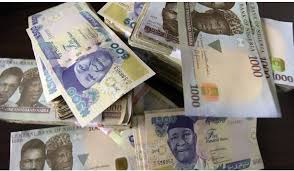A Senior Advocate of Nigeria (SAN), Dr. Wahab Shittu, has issued a stern warning to Nigerians against the mutilation and abuse of the naira, stressing that such acts damage public trust in the country’s currency and weaken the overall economy. He described the abuse of naira notes as a direct threat to Nigeria’s economic confidence and identity.
Dr. Shittu gave this charge during a sensitisation programme organised by the Economic and Financial Crimes Commission (EFCC) in Lagos on Monday. In his presentation, he explained that the Central Bank of Nigeria (CBN) maintains a zero-tolerance policy for naira mutilation and related currency abuse, given the negative ripple effects on the nation’s financial system.
He warned that mutilated or abused currency erodes economic confidence, disrupts daily transactions, and presents broader challenges for monetary policy. “Mutilated notes endanger the economy by weakening trust in the currency, with multiplier negative effects on daily transactions,” he stated.
The senior lawyer highlighted that the responsibility of preserving the integrity of Nigeria’s currency should not rest on the CBN alone but should be seen as a collective national obligation. He reminded the public that the EFCC, under its establishing Act of 2004, is empowered to enforce laws against economic and financial crimes, including provisions under the CBN Act 2007 that protect the naira.
Dr. Shittu advised Nigerians to refrain from spraying or mishandling currency at social events, recommending alternative ways to gift money, such as transferring funds electronically, using gift bags, or presenting neatly packed envelopes. “We must avoid the danger of being arrested or jailed for naira abuse or mutilation. Appreciating celebrants does not require currency spraying,” he said.
He clarified that the CBN defines mutilated naira notes as those that are torn, burnt, defaced, badly soiled, or missing essential parts. Other forms of damage include ink, oil, or chemical stains, washed or overly worn notes, and the fading or absence of security features.
According to Shittu, common causes of naira mutilation include poor public handling—like folding, squeezing, or writing on notes—exposure to harsh environmental conditions, storage in damp places, and deliberate abuse, such as stapling or spraying notes at events.
He cited the CBN Act 2007, which prohibits spraying, writing on, stapling, or mutilating naira notes, with offenders liable to face fines or imprisonment. He also noted that any financial institution caught recycling mutilated notes risks penalties or blacklisting by the CBN.
Shittu emphasised the CBN’s ongoing efforts to maintain a clean note policy, which involves withdrawing unfit notes from circulation and replacing them through deposit money banks. “The CBN actively monitors compliance and has entrenched provisions under the CBN Act 2007 to address naira abuse,” he said.
He underlined the symbolic importance of the naira as a national asset, describing its abuse as an affront to Nigeria’s sovereignty. “The CBN regards the spraying of naira notes as a violation of the country’s symbol of sovereignty. Respect for the naira is critical to building a stronger economy,” he added.
Dr. Shittu called on citizens to preserve the integrity of the currency by adhering to legal and regulatory standards, warning that the nation’s economic identity and trust depend on the proper handling of its currency.
